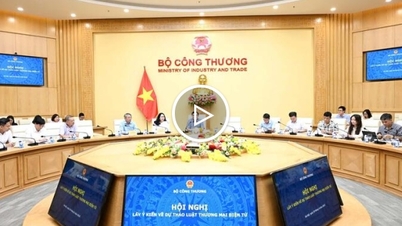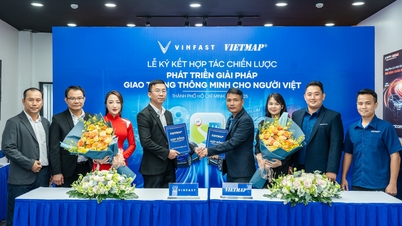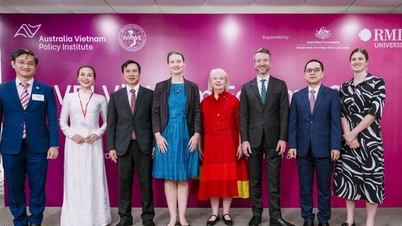Lovable reached over $100 million in annual revenue in just eight months, becoming the fastest-growing software company in history. This extraordinary success comes from using artificial intelligence (AI) to help millions of non-coders instantly turn their ideas into websites, apps, and online businesses.
In Stockholm, Sweden, pharmaceutical executive Oskar Munck af Rosenschöld, who had never programmed professionally, used Lovable to build a platform that connected filmmakers and investors. In just 10 days, the project FrameSage was born and generated $50,000 in revenue. “It felt like I had the magic key to creating software,” Oskar said.
With Lovable, users don’t need to write a single line of code, just describe their ideas in words. Thanks to generative AI, the platform can design, build, and deploy complete applications, from restaurant management to recruitment platforms.

Jaleel Miles, founder of Quicktables in Malmö, is a prime example. He created a restaurant management platform with Lovable in just two months and has already generated over $120,000 in sales.
Lovable is not only appealing to independent founders, but also to large enterprises. Brazilian education company QConcursos used Lovable to develop a premium version of its app in two weeks, bringing in over $3 million in just 48 hours.
In June alone, around 750,000 projects – apps, websites, businesses – were built, hosted, and deployed on Lovable.
Lovable is more than just a tool; it has attracted big investors. Accel led a $200 million funding round, valuing Lovable at $1.8 billion with just 45 employees. “Lovable is like a CTO with taste, who knows what you need and builds it for you,” said CEO Anton Osika.
Lovable now brings in about $1 million in revenue every day. Fees start at $25 a month, allowing users to create anything from simple games like “Snake” to complex apps.
The Rise of Lovable
Lovable has emerged as a symbol of the “AI for the masses” generation, but also faces big rivals from Silicon Valley and veteran names in the software industry.
In the market, Lovable is competing directly with tools like Replit, StackBlitz, Google Firebase Studio or OpenAI. These tools also allow creating applications with simple text descriptions, opening up the race of “vibe coding” – when non-professionals can also create software.
However, Lovable focuses on simplicity and speed, conquering the mass user group – from students, independent founders to designers or small shop owners.
Loveable co-founder Anton Osika is not a technical person. He studied physics at KTH and worked at CERN, but realized he wanted to make an impact faster by starting a business. After testing the GPT Engineer tool on GitHub, he decided to co-found Lovable with Fabian Hedin in September 2023.
After an unsuccessful initial launch, the team re-engineered Lovable to support not only static web but also dynamic applications. In November 2024, Lovable relaunched and raised over $5 million in just one month.
Lovable isn’t perfect, though. Some complex apps still require programmers to handle the “hardware” behind the scenes. Lennert Jansen, founder of Airweave, used Lovable to create a demo to help his startup get into Y Combinator. His team then had to rewrite the backend by hand, but Lovable saved a lot of time up front.
Lovable’s biggest challenge is the cost of using platform AI models like Anthropic’s Claude, which the company spends millions of dollars a month on. Anthropic is also developing its own coding tool, becoming a direct competitor.
However, Osika still maintains the philosophy: “People understand people and Lovable is a tool to help turn ideas into reality in just a few minutes”.

Source: https://vietnamnet.vn/kiem-1-trieu-usd-moi-ngay-tu-cong-cu-viet-app-khong-can-code-2425400.html




![[Photo] Thac Ba Lake: Towards an international-class tourism, resort and cultural center by 2040](https://vphoto.vietnam.vn/thumb/1200x675/vietnam/resource/IMAGE/2025/9/12/0940443efe0a427b88707caadba1cc41)
![[Photo] Launching Ceremony of the Specialized Electronic Information Page of the Communist Party of Vietnam - 14th Congress](https://vphoto.vietnam.vn/thumb/1200x675/vietnam/resource/IMAGE/2025/9/12/4c1b894be2ea4e3daccfd8c038b6fb46)
![[Photo] General Secretary To Lam attends the launching ceremony of the website of the Communist Party of Vietnam - 14th National Congress](https://vphoto.vietnam.vn/thumb/1200x675/vietnam/resource/IMAGE/2025/9/12/0d4fce7dbce2409cb3c03c21fdf3c3b5)

































![[Photo] Where the history of resistance comes alive with modern technology at "95 years of the Party Flag lighting the way"](https://vphoto.vietnam.vn/thumb/1200x675/vietnam/resource/IMAGE/2025/9/12/81c1276f52b849c8b16e2d01dd1c85e4)































































Comment (0)